Editors-in-Chief

Dr. Jules M. Blais
The founding Editor-in-Chief of FACETS, Dr. Jules M. Blais, is a Professor in the Department of Biology, University of Ottawa. He is a Fellow of the Royal Canadian Geographical Society and has received numerous awards including Environmental Scientist of the Year, the Lindeman Award, the Stevenson Award, and is co-recipient of the prestigious NSERC Brockhouse Canada Prize for Interdisciplinary Research in Science and Engineering. This Prize is considered one of the highest research honours in Canada, and recognizes a research collaboration that highlights the importance of taking a multidisciplinary approach to complex scientific concepts.
Dr. Blais’ research focuses on identifying the consequences of environmental pollutants on natural systems. His main emphasis is on the sources, pathways and fate of persistent pollutants in aquatic environments. In particular, he is determining how industrial pollutants are transported and concentrated by natural processes to reach elevated exposures in target organisms, including humans.

Dr. Fanie Pelletier
Dr. Fanie Pelletier, Canada Research Chair in Human Impacts on Wildlife, is a Professor in the Department of Biology, Université de Sherbrooke. She is a fellow of the College of the Royal Society of Canada and has received several awards, including the prestigious NSERC E.W.R. Steacie award for early researchers in Science and Engineering. Her research focuses on the evolutionary ecology of vertebrates including life-history evolution, reproductive strategies, and population dynamics. She has used innovative methods to demonstrate how human activities affect wild populations. She is also a member of the terrestrial mammals specialist subcommittee for the Committee on the Status of Endangered Wildlife in Canada (COSEWIC), as well as the co-director of the Quebec Center for Biodiversity Science (QCBS).
We're multidisciplinary and so is our Editorial Board. Much of the research done by our subject specialists crosses academic borders and our team has the expertise and experience to evaluate and refine multi- and interdisciplinary research in a variety of subjects.
Senior Editors

Paul Dufour
Paul Dufour is Principal of PaulicyWorks based in Gatineau, Quebec and Senior Fellow with the Univerty of Ottawa's Institute for Science, Society and Policy. In addition, he is a Board member the Ottawa Science Policy Network, and a mentor for the Chief Science Advisor of Canada's Youth Council. Mr Dufour served as interim executive director of the Office of the National Science Adviser to the Government of Canada. Mr Dufour was a member of the Royal Canadian Geographical Society gold medal award-winning Canadian National Committee for the International Polar Year. With over four decades of experience in policy advice, he was the lead of the Research on Knowledge Systems project with the International Development Research Centre; managed the science and technology attache network at Foreign Affairs Canada; headed the international partnerships group at Natural Resources Canada, and was advisor to several of Canada’s Ministers for Science, Research and Development. He was an Investment Committee Member of Grand Challenges Canada for global health for eight years. Mr Dufour was also research advisor for the Science Council of Canada in the early 80s and 90s. Born in Montréal, Mr. Dufour was educated at McGill, the Université de Montréal and Concordia University in the history of science and science policy. He writes regularly for various research magazines and publications, and consults on global developments in science and technology. He co-edited the Cartermill Series of books on science in Japan, Germany, the UK and Southern Europe. He is the author of the Canada Chapter for UNESCO’s 2020 (as well as those for 2015 and 2010). He is also co-editor of the book on the contributions of the Science Council of Canada to the science, technology and innovation debates as well as co-editor of selected speeches and remarks of Nobel laureate Gerhard Herzberg on The Value of Science in Society and Culture. In 2019, Mr Dufour was the first recipient of the Canadian Science Policy Centre Award for Exceptional Achievement in Science Policy.

Dr. Maud Ferrari
Maud Ferrari is a Professor in the Departments of Veterinary Biomedical Science and Biology, at the University of Saskatchewan. She is a fellow of the College of the Royal Society of Canada. Her research interests lay in behavioural, cognitive and evolutionary ecology in general, along with understanding how environmental change (both natural and anthropogenic) affects the ecology of predator-prey interactions.

Dr. Irene Gregory-Eaves

Dr. Béla Joós

Dr. Dawn Kellett
Dawn Kellett is a Research Scientist with the Geological Survey of Canada branch of Natural Resources Canada. Her research focuses on the tectonic evolution of mountain belts using a range of structural, metamorphic and geochronology approaches. In addition to her role as Senior Editor of FACETS, she is an associate editor for Journal of Geophysical Research - Solid Earth and the Canadian Journal of Earth Sciences.

David Lesbarreres
Dr. David Lesbarrères is an evolutionary ecologist dedicated to evidence-based policy, preserving biodiversity and training the next generation of conservation scientists. He brings a broad general knowledge and curiosity about a breadth of conservation issues and approaches at the interface of science and policy. He currently works as a Biodiversity and Conservation Scientist for Environment Canada. His research focuses on the ecology and species diversity of amphibians and reptiles, and their associated pathogens in a OneHealth framework recognizing the importance of maintaining the healthy environment that has been cared for by generations before us.

Andrea Olive
Andrea Olive is a Professor joint appointed to the Department of Political Science and the Department of Geography, Geomatics and Environment at the University of Toronto Mississauga. Her area of expertise is wildlife conservation policy in Canada and the United States. She is especially interested in species at risk policy, the governance of working landscapes, and landowner motivations for stewardship.
Dr. Parminder Raina
Dr. Parminder Raina is a Professor in the Department of Health Research Methods, Evidence, and Impact at McMaster University. He specializes in the epidemiology of aging with emphasis on developing the interdisciplinary field of geroscience to understand the processes of aging from cell to society. He has expertise in epidemiologic modeling, systematic review methodology, injury, and knowledge transfer. Dr. Raina is a fellow of the Canadian Academy of Health Sciences, holds a Canada Research Chair in Geroscience, and the Raymond and Margaret Labarge Chair in Research and Knowledge Application for Optimal Aging. He is the inaugural Scientific Director of the McMaster Institute for Research on Aging, and The Labarge Centre for Mobility in Aging, and is the lead principal investigator of the Canadian Longitudinal Study on Aging. He is one of the founding members of the McMaster Optimal Aging

Dr. Vance Trudeau
Professor Vance L. Trudeau holds the University of Ottawa Research Chair in Neuroendocrinology and leads a team of dynamic graduate students with wide interests. His group's research is directed towards understanding how the vertebrate brain regulates anterior pituitary hormones that control sexual development and reproduction using fish and frog models. Applications of this basic research include spawning induction methods for endangered animals, among others. One of the most compelling recent discoveries is the fundamental role of a peptide called secretoneurin. We have made the proposal that it is a new reproductive hormone. The team also studies the effects of sex steroids and pollutants (pharmaceuticals, pesticides, petroleum products) on development and reproduction in fish and frogs. This concept is called endocrine disruption. This has important implications for environmental and human health because many of these hormonal systems are conserved across species. This means that what is discovered in one species, has major implications in other vertebrates, including humans.
Consulting Editors

C. Scott Findlay
C. Scott Findlay is a Researcher in Residence at the Office of the Chief Science Advisor of Canada, and former director of the Institute of Environment at the University of Ottawa. His research interests include evolutionary game theory, the evolution of therapeutic resistance in cancer, the impacts of human activities on ecosystems, species at risk, and more recently, the relationship between law and science and the (appropriate) role scientific evidence in policy and regulatory decision-making. At the Office of the Chief Science Advisor, he leads files on impact assessment, biodiversity conservation, climate change adaptation and scientific integrity.

Imogen Coe
Dr. Imogen R. Coe is a professor of Chemistry and Biology, former founding dean of the Faculty of Science at Toronto Metropolitan University and an affiliate scientist at St. Michael’s Hospital, Toronto. In addition to being an academic scientist, Dr. Coe is an award-winning scholar-activist and one of Canada's leading advocates for organizational change towards inclusive excellence in research, particularly in science and medicine. She has advised academia, research organizations and federal funding agencies (among many others) on how to integrate equity, diversity and inclusion principles into diverse research cultures. She has published on inclusive leadership, misogyny in science and the need for intentional policy around EDI-infused organizational culture in diverse venues. She is much in demand as a speaker and has received numerous awards for her advocacy work.
 Tom AlUniversity of OttawaGeosciences
Tom AlUniversity of OttawaGeosciences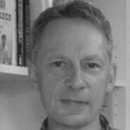 Steve AlsopYork UniversityScience Education
Steve AlsopYork UniversityScience Education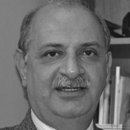 Raid Al-TahirUniversity of New BrunswickEngineering
Raid Al-TahirUniversity of New BrunswickEngineering Catherine AndersonScience World/University of British ColumbiaScience Communication
Catherine AndersonScience World/University of British ColumbiaScience Communication Gregory AranovichJohns Hopkins University, USAEngineering
Gregory AranovichJohns Hopkins University, USAEngineering Hugo AsselinUQAT, CanadaIndigenous Studies
Hugo AsselinUQAT, CanadaIndigenous Studies Graeme AuldCarleton University, CanadaIntegrative Sciences
Graeme AuldCarleton University, CanadaIntegrative Sciences Clément BatailleUniversity of OttawaGeosciences
Clément BatailleUniversity of OttawaGeosciences Maxim BerezovskiUniversity of OttawaChemistry
Maxim BerezovskiUniversity of OttawaChemistry Catherine BeaucheminToronto Metropolitan UniversityBiophysics
Catherine BeaucheminToronto Metropolitan UniversityBiophysics Idil BoranYork UniversityEthics
Idil BoranYork UniversityEthics Lia BronsardMcMaster UniversityMathematics and Statistics
Lia BronsardMcMaster UniversityMathematics and Statistics Jacob BrownscombeGreat Lakes Laboratory for Fisheries and Aquatic Science, Fisheries and Oceans CanadaMarine and Aquatic Sciences
Jacob BrownscombeGreat Lakes Laboratory for Fisheries and Aquatic Science, Fisheries and Oceans CanadaMarine and Aquatic Sciences Warren Cardinal-McTeagueUniversity of British ColumbiaForest and Conservation Science
Warren Cardinal-McTeagueUniversity of British ColumbiaForest and Conservation Science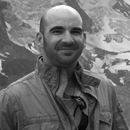 Christofer ClementeUniversity of the Sunshine Coast, AustraliaAnatomy and Biomechanics
Christofer ClementeUniversity of the Sunshine Coast, AustraliaAnatomy and Biomechanics Laurie ChanUniversity of Ottawa, CanadaBiology
Laurie ChanUniversity of Ottawa, CanadaBiology Jeffery ClementsDFO Gulf RegionIntegrative Sciences and Science Communication
Jeffery ClementsDFO Gulf RegionIntegrative Sciences and Science Communication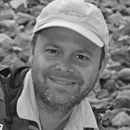 Steven CookeCarleton UniversityEcology and EvolutionMarine and Aquatic SciencesScience CommunicationScience and Policy
Steven CookeCarleton UniversityEcology and EvolutionMarine and Aquatic SciencesScience CommunicationScience and Policy Charles CouillardUniversité LavalClinical SciencesNutrition, Sport, and Exercise Sciences
Charles CouillardUniversité LavalClinical SciencesNutrition, Sport, and Exercise Sciences Carolyn EmeryUniversity of CalgaryPharmacology
Carolyn EmeryUniversity of CalgaryPharmacology Eva EndersInstitut National de la Recherche Scientifique, Eau Terre Environnement Research CentreMarine and Aquatic Sciences
Eva EndersInstitut National de la Recherche Scientifique, Eau Terre Environnement Research CentreMarine and Aquatic Sciences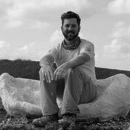 David EvansRoyal Ontario Museum/University of TorontoAnatomy and BiomechanicsGeosciencesZoology
David EvansRoyal Ontario Museum/University of TorontoAnatomy and BiomechanicsGeosciencesZoology Michael EvansUniversity of TorontoMathematics and Statistics
Michael EvansUniversity of TorontoMathematics and Statistics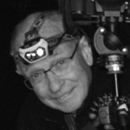 Brock FentonWestern UniversityEcology and EvolutionZoology
Brock FentonWestern UniversityEcology and EvolutionZoology Julio Mercader FlorinUniversity of CalgaryEcology and EvolutionGeosciences
Julio Mercader FlorinUniversity of CalgaryEcology and EvolutionGeosciences Danielle FraserMuseum of Nature Paleobiology DepartmentPaleobiology
Danielle FraserMuseum of Nature Paleobiology DepartmentPaleobiology Christoph GeissTrinity College, USAGeosciences
Christoph GeissTrinity College, USAGeosciences Kathy GeorgiadesMcMaster UniversityMental Health
Kathy GeorgiadesMcMaster UniversityMental Health A. GodavariEarly Career ResearcherVels UniversityCell and Developmental BiologyMicrobiology
A. GodavariEarly Career ResearcherVels UniversityCell and Developmental BiologyMicrobiology Jessica GrahnWestern University, CanadaNeuroscience
Jessica GrahnWestern University, CanadaNeuroscience Blane Leslie HarveyMcGill UniversityIntegrative Sciences
Blane Leslie HarveyMcGill UniversityIntegrative Sciences Matthew HoganOttawa Hospital Research Institute/University of OttawaNeuroscience
Matthew HoganOttawa Hospital Research Institute/University of OttawaNeuroscience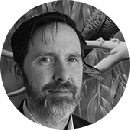 Andrew IwaniukUniversity of LethbridgeNeuroscience
Andrew IwaniukUniversity of LethbridgeNeuroscience Jean-Paul Jay-GerinUniversité de SherbrookeChemistry
Jean-Paul Jay-GerinUniversité de SherbrookeChemistry Petar JevticArizona State University, USAData Science Theory and Methods
Petar JevticArizona State University, USAData Science Theory and Methods Yann JolyMcGill UniversityScience and Policy
Yann JolyMcGill UniversityScience and Policy Lina KattanUniversity of CalgaryEngineering
Lina KattanUniversity of CalgaryEngineering Jeremy KerrUniversity of OttawaEcology and EvolutionGeosciences
Jeremy KerrUniversity of OttawaEcology and EvolutionGeosciences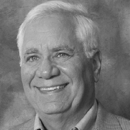 Ronald KlugerUniversity of TorontoChemistry
Ronald KlugerUniversity of TorontoChemistry Philippe LavoieUniversity of TorontoEngineering
Philippe LavoieUniversity of TorontoEngineering David LentzUniversity of New BrunswickGeosciences
David LentzUniversity of New BrunswickGeosciences Danika LittlechildCarleton UniversityIntegrative Sciences
Danika LittlechildCarleton UniversityIntegrative Sciences Ivana Pajic-LijakovicUniversity of BelgradeEngineering
Ivana Pajic-LijakovicUniversity of BelgradeEngineering Juewen LiuUniversity of WaterlooChemistry
Juewen LiuUniversity of WaterlooChemistry Jian LiuBrock UniversityEpidemiology
Jian LiuBrock UniversityEpidemiology Yang LiuUniversity of AlbertaAtmoshperic and Climate SciencesEngineering
Yang LiuUniversity of AlbertaAtmoshperic and Climate SciencesEngineering Tanzy LoveUniversity of Rochester, USAData Science Applications
Tanzy LoveUniversity of Rochester, USAData Science Applications Volodymyr MelnykovUniversity of Alabama, USAData Science Applications
Volodymyr MelnykovUniversity of Alabama, USAData Science Applications Allyson MenziesUniversity of Guelph, CanadaEnvironmental Sciences
Allyson MenziesUniversity of Guelph, CanadaEnvironmental Sciences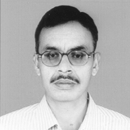 Prashanta Kumar MandalVisva-Bharati University, IndiaMathematics and Statistics
Prashanta Kumar MandalVisva-Bharati University, IndiaMathematics and Statistics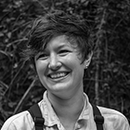 Bethann Garramon MerkleUniversity of WyomingScience Communication
Bethann Garramon MerkleUniversity of WyomingScience Communication Victoria MetcalfOffice of the Prime Minister's Chief Science Adviser, New ZealandScience Communication
Victoria MetcalfOffice of the Prime Minister's Chief Science Adviser, New ZealandScience Communication David MoherOttawa Hospital Research Institute, University of OttawaEpidemiology and Ethics
David MoherOttawa Hospital Research Institute, University of OttawaEpidemiology and Ethics Christophe MorellUniversity of Lyon 1, FranceChemistry
Christophe MorellUniversity of Lyon 1, FranceChemistry Candace NykiforukUniversity of AlbertaPublic Health
Candace NykiforukUniversity of AlbertaPublic Health Diane OrihelQueen's UniversityEnvironmental Studies and Biology
Diane OrihelQueen's UniversityEnvironmental Studies and Biology Sanjeevikumar PadmanabanAalborg University, DenmarkEngineering
Sanjeevikumar PadmanabanAalborg University, DenmarkEngineering Nitika PaiMcGill UniversityBiomedical and Health Sciences and Epidemiology
Nitika PaiMcGill UniversityBiomedical and Health Sciences and Epidemiology Shandin PeteUniversity of British ColumbiaEarth, Ocean, and Atmospheric Sciences
Shandin PeteUniversity of British ColumbiaEarth, Ocean, and Atmospheric Sciences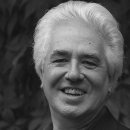 James PinfoldUniversity of AlbertaPhysics
James PinfoldUniversity of AlbertaPhysics Lisa PorterUniversity of Windsor, CanadaCell and Developmental Biology
Lisa PorterUniversity of Windsor, CanadaCell and Developmental Biology Alexandre PoulainUniversity of OttawaMicrobiology
Alexandre PoulainUniversity of OttawaMicrobiology Michael RennieLakehead UniversityMarine and Aquatic Sciences
Michael RennieLakehead UniversityMarine and Aquatic Sciences Chris SergeantEarly Career ResearcherUniversity of Washington, School of Marine and Environmental AffairsMarine and Aquatic SciencesScience and Policy
Chris SergeantEarly Career ResearcherUniversity of Washington, School of Marine and Environmental AffairsMarine and Aquatic SciencesScience and Policy Marie-Claire ShanahanUniversity of CalgaryScience CommunicationScience Education
Marie-Claire ShanahanUniversity of CalgaryScience CommunicationScience Education John SmolQueen's UniversityMarine and Aquatic Sciences
John SmolQueen's UniversityMarine and Aquatic Sciences Yang SongWestern UniversityMaterials Science
Yang SongWestern UniversityMaterials Science Kimberly StrongUniversity of TorontoDepartment of Physics
Kimberly StrongUniversity of TorontoDepartment of Physics Sharifu UraKitami Institute of Technology, JapanEngineering
Sharifu UraKitami Institute of Technology, JapanEngineering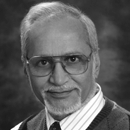 Arun ValsangkarUniversity of New BrunswickEngineering
Arun ValsangkarUniversity of New BrunswickEngineering Nicholas VlachopoulosRoyal Military CollegeEngineering
Nicholas VlachopoulosRoyal Military CollegeEngineering Dietrich VolmerHumboldt University, GermanyChemistry
Dietrich VolmerHumboldt University, GermanyChemistry Hongyi XuFudan University, ChinaEngineering
Hongyi XuFudan University, ChinaEngineering Yangfan ZhangEarly Career ResearcherHarvard UniversityMarine and Aquatic SciencesEcology and EvolutionZoology
Yangfan ZhangEarly Career ResearcherHarvard UniversityMarine and Aquatic SciencesEcology and EvolutionZoology Jiang ZhuNational Laboratory for Scientific Computing (LNCC/MCTI), BrazilMathematics and Statistics
Jiang ZhuNational Laboratory for Scientific Computing (LNCC/MCTI), BrazilMathematics and Statistics Yingqing ZuFudan University, ChinaMathematics and Statistics
Yingqing ZuFudan University, ChinaMathematics and Statistics
Publishing Team
Publisher and Chief Executive Officer Elaine Stott
Sr. Director, Editorial Judy Busnarda
Acting Editorial Director Rachel Pietersma
Journal Development Specialist Hilary Belleville
Director, Peer Review Natasha McDonald, Dr. rer. nat.
Peer Review Manager Alistair Coulthard, Ph.D.
Peer Review Coordinator Nicole Huskins
Director, Integrity and Engagement Melanie Slavitch
Editorial Outreach Specialist Lucinda Shen, M.Sc.
Acting Manager, Production Lisa Ball
Production Editor Michelle Welsh
Editorial Office
FACETS
Canadian Science Publishing
123 Slater Street, Suite 610
Ottawa, ON, K1P 5H2, Canada
Fax: 613-656-9838
Email: [email protected]
About the Publisher
Canadian Science Publishing (CSP), head-quartered in Ottawa, Ontario (Canada), is an independent, not-for-profit scholarly publisher dedicated to serving the needs of researchers and their communities, not only by publishing quality peer-reviewed journals but also by supporting the knowledge-sharing activities of scholarly societies and other key partners through events, awards, and other exchanges. CSP’s Board is drawn from the research and publishing communities and represents all interests of the scholarly publishing community in Canada and beyond, including researchers, scientific societies, libraries, and business. The CSP membership base includes a wide range of institutions and organizations that have a stake in developing a healthy scholarly scientific publishing industry. CSP publishes the award-winning NRC Research Press suite of journals, many of which have been in publication since 1929.
